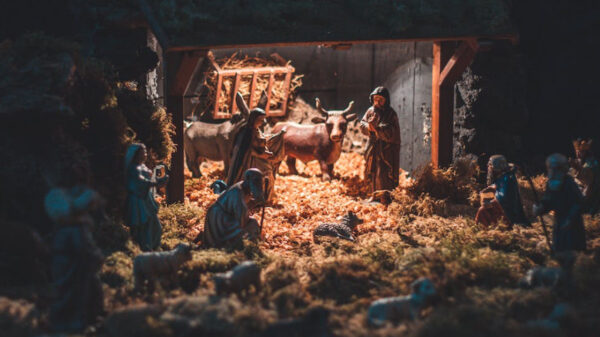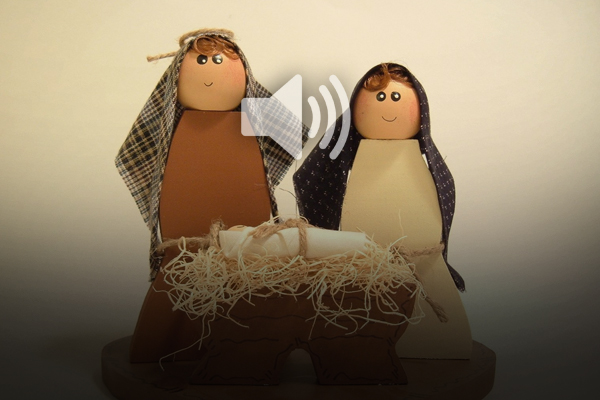As Christmas approaches, many people begin to question the legitimacy of the holiday. Was Jesus born on December 25th? Was Christmas simply borrowed from earlier pagan sources? Is Christmas a pagan holiday? Questions of this nature can be disturbing to believers who haven’t investigated the history of the holiday. Does the history of Christmas discredit Christianity as a whole?
So what is the deal with Christmas? Is Christmas really a pagan holiday?
It is important to point out that the specific date of Christ’s birth is not mentioned anywhere in the Bible. As a result, any date we could choose to celebrate Jesus’ birth would be speculative. When Christians celebrate Jesus’ birth on December 25, it is not because we believe he was born on that actual date. Instead, we have chosen a date to collectively celebrate the birth of the Savior.
In the early days of Christianity, the Roman Empire ruled much of the known world and Christians were a persecuted minority. The teachings of Christianity were new and suspicious to many of the Roman citizens and leaders. Over time Christianity grew and a Roman Emperor (Constantine) became a Christian. Sonn, following the Edicts of Milan and Thessalonica, Christianity became the religion of the Empire.
Prior to these edicts, Romans celebrated the winter solstice with a festival on December 25th. The Roman Church chose to continue the tradition of celebrating a holiday on this date but wanted to use the holiday to point to something greater: the birth of Jesus. In some ways this was an effective strategy. New Roman Christians did not have to give up a tradition they enjoyed, but the new Christmas holiday put the focus on the Savior. As Christianity moved into other regions, other cultural traditions were absorbed into the Christmas holiday as well.
Not all Christians loved this strategy. Historically, many Christian groups did not celebrate Christmas because it borrowed the trappings of pagan holidays. Even some early Americans did not celebrate Christmas for just this reason.
Today, thousands of years after those pagan holidays gave way to Christmas, the holiday is celebrated by the vast majority of American Christians. For the modern Christian, Christmas is a time to celebrate the coming of the Savior, the momentous occasion when God appeared in human form in order to suffer and die for our own sin. While some of the symbols may be similar to those old pagan celebrations, the meaning we ascribe to these symbols has become uniquely Christian. Because Christmas has become a secular holiday as well, Christmas is also a time when Christians share something in common with their non-believing family and friends. How many times have we been able to invite a friend to church simply because it was Christmas? Just as in Roman times, the shared holiday tradition allows us to communicate something about the Gospel to the world around us. Although the date of our celebration and some of the traditional elements may have been borrowed from non-Christian cultures, Christmas today is a distinctly Christian holiday. Share on X
Although the date of our celebration and some of the traditional elements may have been borrowed from other non-Christian cultures in the distant past, Christmas today is a distinctly and uniquely Christian holiday. In every grocery store Christmas songs are playing, popular singers doing their rendition of lyrics which explicitly point to Christ’s birth. Regardless of the history of the holiday, this time of year is a great reminder of God’s love and sacrifice for us. For me, that’s reason enough to celebrate.
Jimmy Wallace is a detective who holds a BA in Psychology (from UCLA) and an MA in Theology - Applied Apologetics (from Colorado Christian University).








































Dave Snyder
December 30, 2020 at 3:22 pm
While you are correct there is no specific calendar day fixed for Christ’s birth it can be very closely approximated by examining several pieces of Old Testament evidence namely the ancient established Hebrew feasts. Which were all signposts pointing the Messiah. Trumpets, Tabernacles, Atonement and so forth. The ancient celebration of Tabernacles , preceded by Trumpets, required the jews of the day to leave their homes and live in temporary dwellings for a prescribed time.
Since Christ’s life fulfilled all of the ancient celebrations my conclusion is that it is safe to assume that He was born sometime during the feast of Tabernacles which is some time around late September early October on our calendar.
Years ago my pastor for a time was Dr. Gene Scott who was a big supporter of BIOLA.
John E Thompson
December 26, 2021 at 11:29 am
Why do you perpetuate the false story and history of the dating of Christmas with the discredited narrative of a Roman festival? Thought better of this site to be more accurate.
Renee
January 2, 2023 at 7:12 pm
There are early Church Fathers who state the date is December 25th well before all these pagan festivals were set up. I know of at least one in the 100s, maybe a couple of others. And Solstice or not, I remember reading about an Emperor who was Christian, but slid back into paganism, who stated the Christians avoided anything pagan. So with that in mind, I doubt the early Church Fathers and Christians would have co-opted a pagan holiday to celebrate Jesus’ birth.